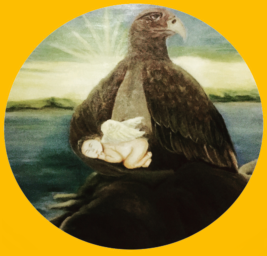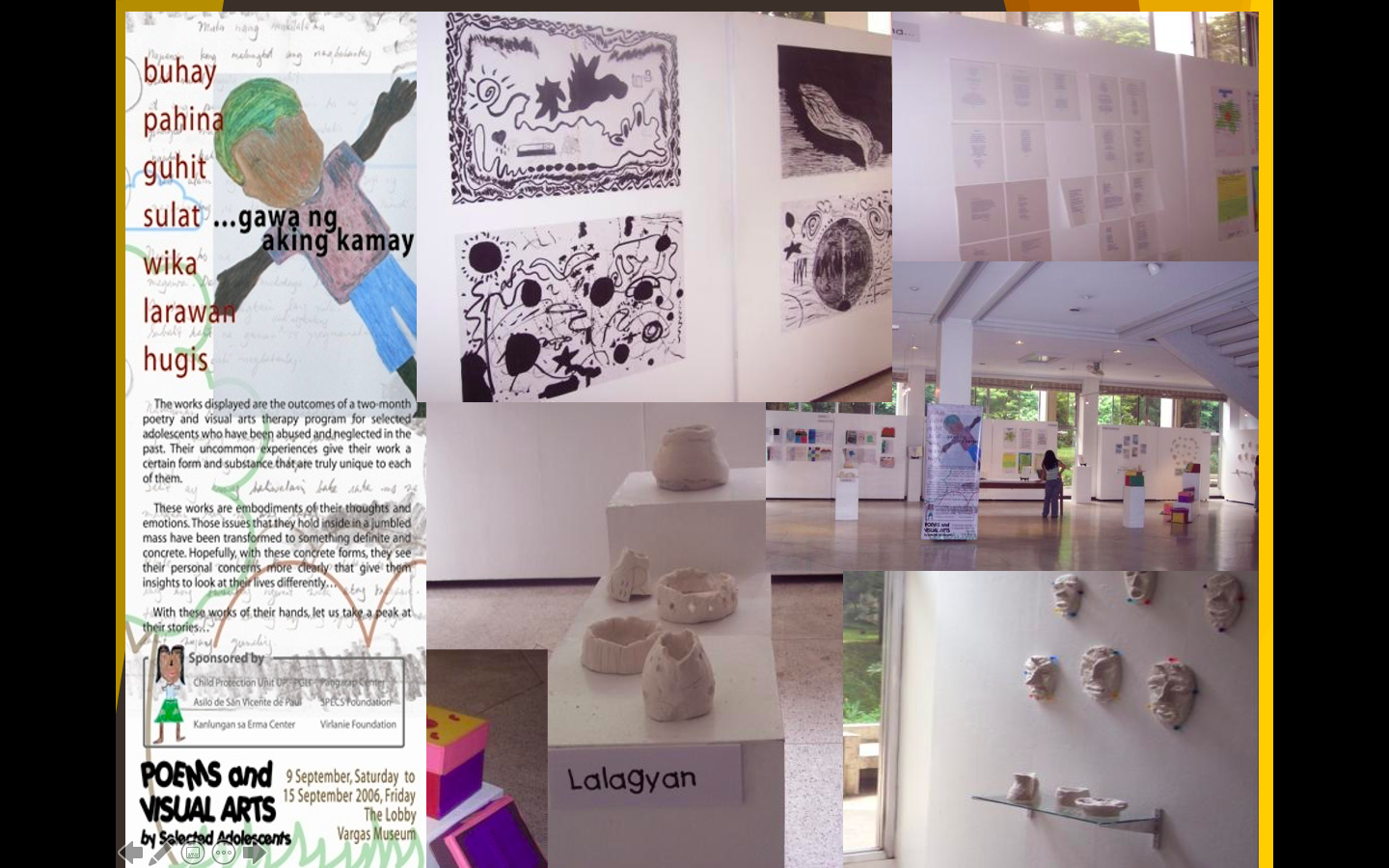Excerpt from my reflection in September 2006
I just finished a two-month program of creative arts-based interventions for abused adolescents (my dissertation). In my hope of providing healing for them, I was the one they helped get healed. Every week we had group sessions. I heard their stories: their brokenness, sadness, faith, hopes and their joys. As I listened to them, I felt a serene sadness and quiet joy.
My research is on evaluating the effectiveness of the interventions in alleviating symptoms of depression and posttraumatic stress disorder of abused adolescents. I thought I could measure healing. When I talked to one of the participants, she said that she was about to commit suicide; then after a session, she realized that her life was valuable. I thought, if the sessions were able to at least help stop a participant from committing suicide, perhaps the program made a difference. If the program provided even a weekly haven for the teens where they felt safe and accepted, maybe it has done its purpose.
The sessions reminded me that psychotherapy is not therapeutic because of its sophistication; it is healing because it allows individuals to affirm their humanity with another person, recognizing their dignity and their capacity to love and be loved.
I have read so many books on different approaches and paradigms of psychotherapies. Authors could write from simple to more elaborate discussions. But then, I realized that what really counts is when I sit down with a patient as a fellow human being, as equal, with the same dignity. I could be vain with a doctoral title, making myself a VIP. However, at the end of the line, my profession will be measured by how much I have given myself to help another person in pain.
As a clinician, I experience the brokenness of my patients but I am not spared from experiencing their joys when they are helped. I am healed. And this is priceless.

